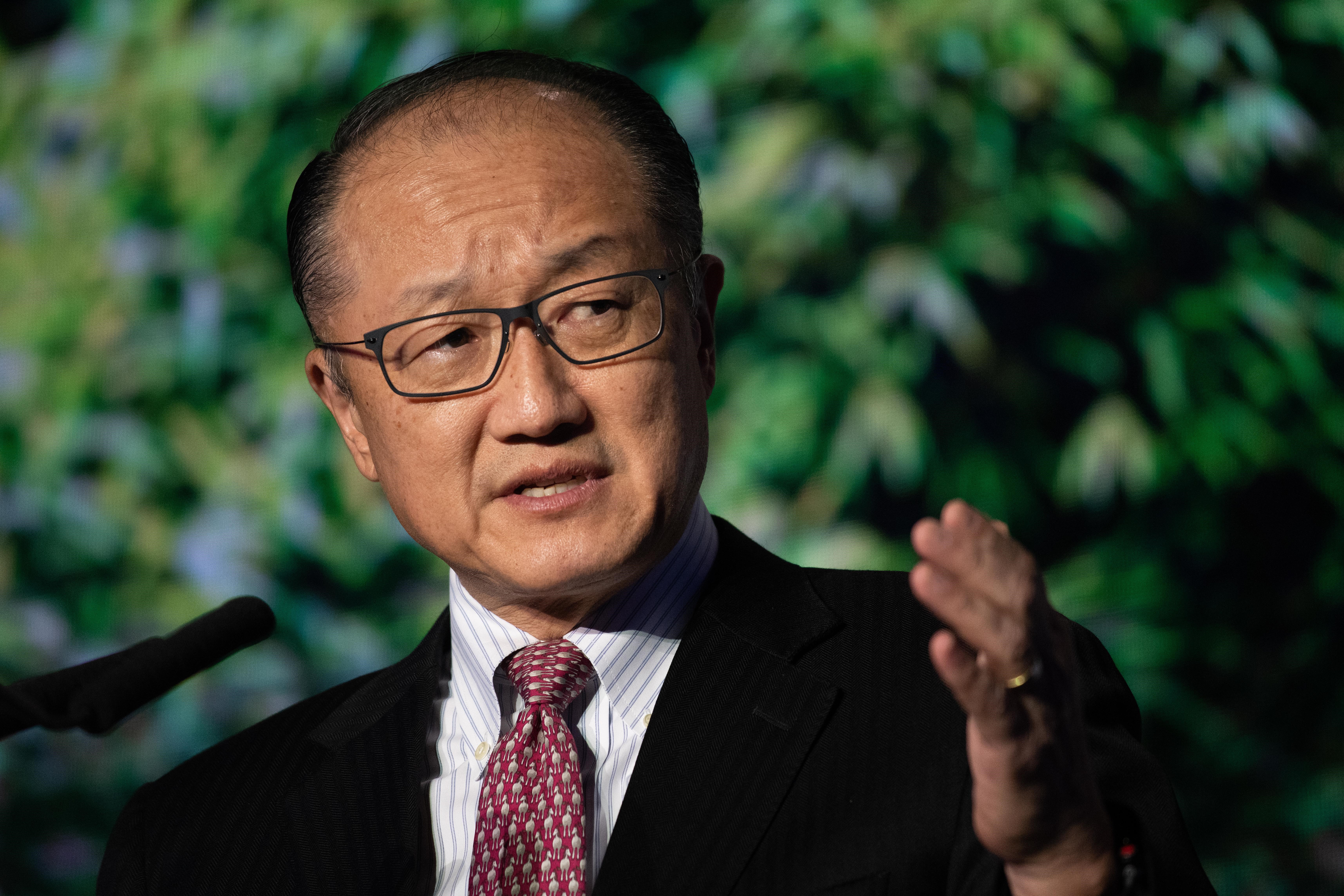World Bank President Jim Yong Kim announces resignation
World Bank President Jim Yong Kim is stepping down in February after six years at the helm of the global development lender
(Nicolas ASFOURI)
Washington (AFP) – World Bank President Jim Yong Kim announced Monday he would step down next month, more than three years before his current term was due to expire.
The decision ends Kim’s six-year tenure and may give US President Donald Trump decisive influence over the future leadership of the 189-member global development lender.
“It has been a great honor to serve as president of this remarkable institution, full of passionate individuals dedicated to the mission of ending extreme poverty in our lifetime,” Kim, 59, said in a statement.
Kim, who became the bank’s president in 2012, is to join an as-yet unnamed firm focusing on investments in developing countries, the bank said in a statement, and will return to the board of Partners-in-Health, which he co-founded.
World Bank CEO Kristalina Georgieva will serve as interim president upon Kim’s February 1 departure, the bank said in a statement.
Under Kim’s leadership, the bank set the goal of eliminating extreme poverty by 2030 and ramped up financing.
Last year, it also won approval for a sharp $13 billion capital increase after acceding to requests from the Trump administration to curb loans to high-income countries like China.
Naming Kim’s replacement could mark a sharp break with the past as the Trump administration has repeatedly broken with multilateral institutions and conventions of which Trump himself has been highly critical.
Under an unwritten rule, the bank’s presidency has always been chosen by its largest shareholder, the United States, an arrangement that also allowed European powers to name the head of the International Monetary Fund.
Nevertheless, when he was nominated for a first term in 2012, Kim was the first US nominee to face a challenger when Nigeria’s Ngozi Okonjo-Iweala entered the contest for the bank’s presidency.
Perhaps warding off challengers and avoiding a repeat of 2012, the administration of former president Barack Obama in 2016 swiftly endorsed Kim for a second five-year term, which began in 2017.
However, the bank’s staff association in 2016 delivered a stinging broadside, citing high levels of disaffection among its 15,000 employees, asserting that it faced a “crisis of leadership” and calling for an end to “back-room deals” over control of the institution.
World Bank staff also chafed at a widespread internal restructuring that Kim began, as well as spending and staff cuts.
Internal staff surveys showed rank and file frequently did not trust management or understand the direction in which the institution was headed.
Disclaimer: This story is published from a syndicated feed. Siliconeer does not assume any liability for the above story. Validity of the above story is for 7 Days from original date of publishing. Content copyright AFP.


